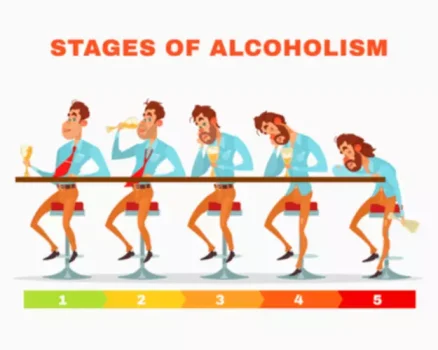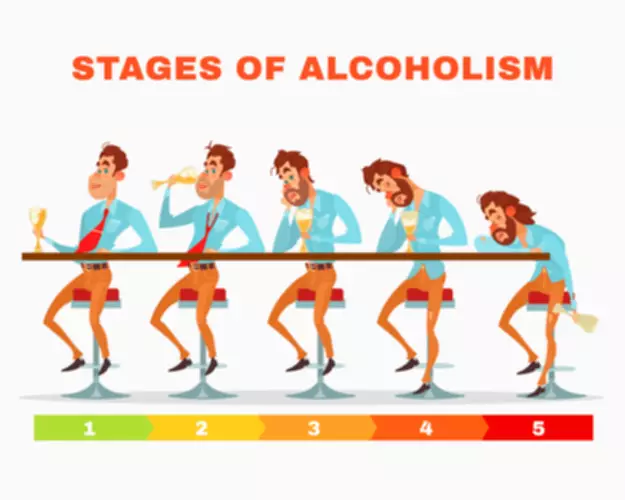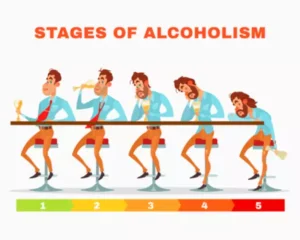
This becomes binge drinking if a male consumes five or more drinks, or a female drinks 4 or more drinks during a general two-hour time frame on at least one occasion within a month. If you can control and stop your drinking, and alcohol is not causing any negative consequences, moderate drinking is considered a part of a healthy lifestyle. There are a few telltale signs that you might need to adjust your approach to social drinking to semi or full sobriety.

Giving up alcohol for Dry January? Our newsletter can help you reach your goal
Ria Health offers alcohol treatment from the comfort of your home through a smartphone app, including anti-craving medications and weekly coaching meetings. We support both moderation and abstinence as goals, and can help you work towards a healthier relationship with alcohol on your schedule. Social drinking continues to be prevalent in our society, and for many people there is no cause for concern. But there are many other cases in which drinking alcohol becomes habitual for a person, and leads to dependency.
Is social drinking bad for your health?
As some people try to cut down their drinking and embrace Dry January, they may look to Canada’s health agencies for guidance — and find some conflicting advice. If you feel like alcohol helps you in a social setting, whether it’s by making you more calm or confident, just know that there are other, potentially healthier options for getting that effect, says Gardner. Having a conversation in advance can also help set expectations on your friends’ part. This way, by the time you get to your destination for the evening, they know you won’t be drinking and have managed their own ideas for how the night will go.
Supporting Loved Ones with Substance Use or Mental Health Disorders During the Holidays
- Some signs of a drinking problem include neglecting responsibilities, health problems, difficulties with quitting or cutting back, and social isolation.
- Our daily research-backed readings teach you the neuroscience of alcohol, and our in-app Toolkit provides the resources and activities you need to navigate each challenge.
- Moderate social drinkers don’t use alcohol to self-medicate mental health conditions, nor do they experience physical cravings for alcohol.
- For years, the implication was that an alcoholic could never drink again.
Another person may consider https://ecosoberhouse.com/ it four or five beers over the course of a day at a birthday party. A different individual may consider it two gin and tonics at happy hour on Tuesday and Thursday and then a heavy night out on the weekend. Some social drinkers can be moderate drinkers because they don’t drink excessively when socializing. It’s often thought of as casual or occasional drinking, but social drinking can easily become problem drinking. No one intends to develop an alcohol dependency, but it can happen easier than you may think.

Organizations That We Support
- Others may be more likely to notice signs of a problem than you are.
- This ingrained cultural attitude remains mostly unchallenged in our society.
- ” The idea that the next drink is going to make you feel even better is the driving force behind alcohol abuse or binge drinking.
- Social drinking is often considered “low-risk drinking.” This level of alcohol consumption involves drinking fewer than seven drinks a week and no more than three drinks a day for women.
- In fact, according to the NIAAA, 72 percent of people have a single period of heavy drinking that lasts 3-4 years and peaks at ages (typically occurs during the college years) that they phase out of.
- Remember, the journey to recovery is continuous, and every small change contributes to a bigger difference.
Some mental health issues like anxiety and depression can lead to alcoholism. People may use alcohol as a way to numb their emotions or escape from social drinking problem mental health symptoms. Choosing to drink multiple times a week can lead to an increased tolerance and the desire to drink more. Following rules for drinking socially can help you avoid drinking too much and may help you avoid alcohol problems in the future.

Supportive families can play a crucial role in long-term recovery. Problem drinking occurs when someone experiences negative effects from alcohol but isn’t addicted. For example, becoming aggressive or upset after drinking can indicate problem drinking. Social drinkers often consume moderate amounts of alcohol and are within marijuana addiction their safe drinking limits. But their habits can vary depending on their situation and culture.


